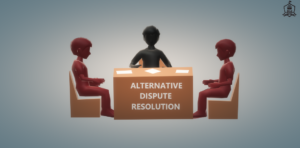A famous businessman of 20th century named David Ogilvy said,” A consumer is not a moron;she is your wife”. From that quotation we may apprehend how important consumers are and their rights as well. The consumer rights protection has become a folksy in recent times and the consumers are much more perturbed by what they buy and eat.
Under the UN Consumer Bill of Rights, eight consumer rights have been proclaimed: Right of Safety, Right to Information, Right to choices, Right to be heard, Right to be satisfaction of Basic needs, Right to redress, Right to consumer education, Right to healthy environment.
The Constitution of Bangladesh has recognized the right of consumers under the fundamental principle of State policy. Article 15 of the constitution incorporates the Provision of basic necessities that deals with the consumer rights protection. The necessity of a statutory law for the protection of the consumer rights had been acknowledged through some decades and taking that into consideration the government of Bangladesh has enacted a legislation named “The Consumer Rights Protection Act, 2009”.Under this legislation, the National Consumer Rights Protection Council has been inaugurated and the Minister of commerce is the ex -officio Chairman of the Council. This Act of 2009 has put together a sum of 45 laws and sections related to the rights of consumers which were prevailing before this enactment.
In recent times, there is undergoing a serious problem of not showing price list in Hats & Bazaars. Section 38 of the Consumer Rights Protection Act, deals with the penalty for not showing price list. Under this section, the shopkeeper will be punished with imprisonment for a term not exceeding one year, or with fine not exceeding fifty thousand taka or both. Now coming to the point of the current problem. After the enactment of Consumer Rights Protection Act, the problems relating to the scarcity of legal provision has been put an end but the public awareness has not been increased. Our consumers still do not consider the concealment of showing price an offence. They are not aware of being cheated by false advertising. False advertising is an offence under section 44 of the Consumer Rights Protection Act,2009 and the offender will be punished with imprisonment for a term not exceeding one year, or fine which may extend to two lakh taka or both.
The major problem in the Consumer Rights Protection Act, 2009 is that the rights of consumers are not delineated here rather it gives more momentous to the Consumer Rights Council and directorate. So the rightly directed laws are absent here for the convenience of the consumerws.The Consumers Rights Protection Act 2009 does not endow any quasi judicial dispute resolution system for the resolution of Consumers’ complaints and it is completely against the international standards in terms of dispute resolution. Our neighboring country India has made provisions of quasi judicial dispute resolution through an enactment in 1996 and its citizen may exercise this provision through three level legal steps at the district, state and national levels.
A tribunal for consumers’ claim was established by Malaysian government with an intention to form an alternative redress mechanism to formal courts. This initiative has had a huge number of matters lodged there. The operation of Bangladeshi Consumer Rights Protection Act is delimited throughout the traditional court system. Our government may launch such an informal tribunal system in our county.
State assistance in relation to consumer movement is a crying need in today’s atmosphere of Bangladesh. Due to the lackings of funds, consumer movement advocacy is not sustainable here. If we have a glimpse in United States, we may find additional resources for consumer movement is derived from the charitable foundations and personal contributions as well. Most of the developed countries have already recognized the resource constraints of the consumer organizations. In 1976, a report from Royal Commission of Australian Government Administration was published and it made a well articulated argument in favour of the state assistance by incorporating its Appendix 2D.In that report, they made a recommendation for the establishment of a specified neutral agency to provide such assistance. In our present semiotic, such an agency may have been launched.
The Republic of the Philippines has passed a legislation incorporating the provision of the source of government support in relation to consumer movement and advocacy in the midst of 1992. It announces that government support is of must for the movement of consumer organization and consumer education. Under that consumer protection law of Phillipines, such financial supports are extracted from the taxes imposed on the unscrupulous traders. In our country, there are hundreds of traders involved in illegal trades and our government may support the consumer movement by extracting those illegal money’s.
Consumerism is a chain that links a country to the rest of the world. And for a developing country like us, it is a pre- requisition for the foreign investments. Without demonstrating our effective consumer protection to the foreign investors, we cannot enhance the opportunities for trade and economic development in our country .And; no doubt, it’s the best time for the government to undertake an exhaustive investigation in all the relevant sectors for a better protection of consumer rights.
Abrar Salam
Latest posts by Abrar Salam (see all)
- Our Consumer Rights: An evaluation - June 9, 2018




